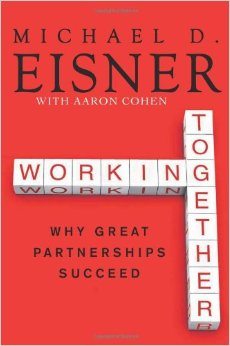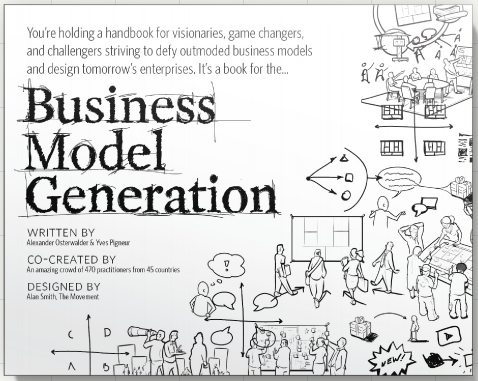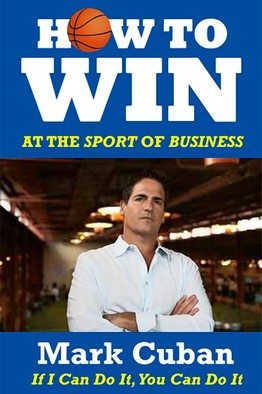Success Advice
5 Must-Read Books For The Budding Entrepreneur

Anybody who has aspirations to become an entrepreneur will have to take several steps before they become successful. Some of this is practical knowledge.
For example, most entrepreneurs must know how to secure funding, know how to write a business plan, and they must understand the steps they must take in order to launch a business.
The latter might include obtaining licenses, obtaining an employer identification number, setting up an accounting system, purchasing insurance, or contracting the services of a payroll provider.
However, in addition to practical knowledge, there are soft skills that an entrepreneur must develop. One of the ways to develop these skills is to read books that either demonstrate what has worked for other successful entrepreneurs, or that tell the stories of what made successful entrepreneurs great.
Here are five books that you must read if you are in any way considering an entrepreneurial career path.
1. The Fire-Starter Sessions – Danielle LaPorte
If you are having  any doubts about your future as an entrepreneur, Danielle LaPorte is about to rip those doubts out of your hands and smash them into oblivion. LaPorte is an award winning author, motivational speaker, and entrepreneur whose take on achieving our dreams is different than anybody else out there.
any doubts about your future as an entrepreneur, Danielle LaPorte is about to rip those doubts out of your hands and smash them into oblivion. LaPorte is an award winning author, motivational speaker, and entrepreneur whose take on achieving our dreams is different than anybody else out there.
Laporte turns myths such as achieving life work balance, and the importance of competency on their ears. Readers praise Ms. LaPorte for her relatable, straight forward delivery and her candor. The Fire-Starter Sessions is a great selection for young entrepreneurs who may have a hard time relating to entrepreneurs from previous generations. Danielle Laporte has been featured in many publications, including The Huffington Post.
“Danielle’s passion leaps off the page, and reading a few chapters of this book will ignite you into action.” – Gretchen Rubin, author of The Happiness Project
2. Working Together: Why Great Partnerships Succeed – Michael Eisner
 In this book, the former CEO of the Walt Disney Corporation explores successful business partnerships that have either lasted for many years or been significantly profitable. In part of the book, Eisner describes his partnership with Frank Wells at Disney. Other famous partnerships that are highlighted in Working Together: Why Great Partnerships Succeed include the following:
In this book, the former CEO of the Walt Disney Corporation explores successful business partnerships that have either lasted for many years or been significantly profitable. In part of the book, Eisner describes his partnership with Frank Wells at Disney. Other famous partnerships that are highlighted in Working Together: Why Great Partnerships Succeed include the following:
Bill and Melinda Gates of the Gates Foundation
Arthur Blanke and Bernie Marcus of The Home Depot
Susan Feniger and Mary Sue Milliken (AKA The Too Hot Tamales of The Border Grill Restaurant Empire), multiple cook books, movies and television
Warren Buffet and Charlie Munger of Berkshire Hathaway
Ron Howard and Brian Grazer of Imagine Entertainment and multiple blockbuster movies
“Are the conclusions about working together groundbreaking? Not really; Eisner points to trust as the foundation, followed closely by a real sense of ethics.” – Jacobs, Barbara 2010 Booklist
3. Business Model Generations – Alexander Osterwalder
 This book is a go to resource for entrepreneurs of a new generation who are eager to pursue new methods of planning and developing future business ventures. It’s a great book for an entrepreneur who is facing the task of rejuvenating an older business with new ideas.Highly graphical in design and layout, Business Model Generations is perfect for the visual thinker. Even though its target audience is Generation X and younger, more seasoned entrepreneurial hopefuls shouldn’t count this book out. Any reader will find an excellent road map for reshaping their thinking on enterprise development and business modeling.
This book is a go to resource for entrepreneurs of a new generation who are eager to pursue new methods of planning and developing future business ventures. It’s a great book for an entrepreneur who is facing the task of rejuvenating an older business with new ideas.Highly graphical in design and layout, Business Model Generations is perfect for the visual thinker. Even though its target audience is Generation X and younger, more seasoned entrepreneurial hopefuls shouldn’t count this book out. Any reader will find an excellent road map for reshaping their thinking on enterprise development and business modeling.
“An impressively comprehensive compendium of many of the most current ideas concerning the structure and development of businesses.” – Anglohigher.com
4. How To Win At The Sport of Business – Mark Cuban
 Along with being the owner of the Dallas Mavericks, Mark Cuban is also a fixture on the well-known television show ‘Shark Tank’. On the show, Cuban is known for truly emulating a shark. He often lies in wait while the other Sharks argue among themselves and make their offers. Then, while the entrepreneur on the carpet weighs his or her options, Cuban comes in with an offer of his own, usually followed by a demand that the entrepreneur accept it immediately.
Along with being the owner of the Dallas Mavericks, Mark Cuban is also a fixture on the well-known television show ‘Shark Tank’. On the show, Cuban is known for truly emulating a shark. He often lies in wait while the other Sharks argue among themselves and make their offers. Then, while the entrepreneur on the carpet weighs his or her options, Cuban comes in with an offer of his own, usually followed by a demand that the entrepreneur accept it immediately.
Given his track record, it’s no wonder that he is taken up on his offers quite frequently. In this book, Cuban details his struggles from powdered milk salesman to world renowned mogul. He also provides great unconventional advice to entrepreneurs who are just getting their starts.
“In short, [HOW TO WIN AT THE SPORT OF BUSINESS] exceeded…expectations. Short chapters…got right to the point and were not filled with ‘stuffing’.” – Huffington Post
5. All Marketers Are Liars – Seth Godin
 Seth Godin believes that successful marketing is all about telling a good story. If you don’t believe him, you’re fooling yourself. Everything about successful marketing is about creating a story and getting your audience to believe that story and to be passionate enough about that story to spread it. Now, the title of the book is a bit tongue in cheek.
Seth Godin believes that successful marketing is all about telling a good story. If you don’t believe him, you’re fooling yourself. Everything about successful marketing is about creating a story and getting your audience to believe that story and to be passionate enough about that story to spread it. Now, the title of the book is a bit tongue in cheek.
The stories that marketers create can absolutely be based in fact, but the delivery of those facts as a story that buyers can relate to is what is most important. Think about it. Any marketing expert will tell you that a successful strategy is based around content and branding. In other words, creating and selling a story that influences the way customers think about your business and your products and services is key to interest and ultimately, sales.
“To illustrate his preferred approach to marketing, the author relates a grab bag of case studies, heavy on emotionally compelling pitches and seamless subliminal impressions. Readers will likely find the book’s practical advice as rudderless as its ethical principles.” – Reed Business Information
Have you read these books yet? What did you think?
Which books would you add to this list?
Business
Why Smart Entrepreneurs Are Quietly Buying Gold and Silver
When stocks, property, and cash move together, smart business owners turn to one asset that plays by different rules.

You’ve built your business from the ground up. You know what it takes to create value, manage risk, and grow wealth. But here’s something that might surprise you: some of the most successful entrepreneurs are quietly adding physical gold and silver to their portfolios. (more…)
Business
The Simple Security Stack Every Online Business Needs
Most small businesses are exposed online without realising it. This simple protection stack keeps costs low and risks lower.

Running a business online brings speed and reach, but it also brings risk. Data moves fast. Payments travel across borders. Teams log in from homes, cafés, and airports. (more…)
Business
If Your Business Internet Keeps Letting You Down, Read This
From smoother operations to better security, dedicated internet access is quietly powering today’s high-performing businesses.

Today, a dependable internet service is the bedrock for uninterrupted business operations. Many organizations rely on stable online connections for communication, data transfer, and customer interaction. (more…)
Did You Know
How Skilled Migrants Are Building Successful Careers After Moving Countries
Behind every successful skilled migrant career is a mix of resilience, strategy, and navigating systems built for locals.

Moving to a new country for work is exciting, but it can also be unnerving. Skilled migrants leave behind familiar systems, networks, and support to pursue better job opportunities and a better future for their families. (more…)
-

 News3 weeks ago
News3 weeks agoBrandon Willington Builds 7-Figure Business by Ignoring Almost Everything
-

 Health & Fitness4 weeks ago
Health & Fitness4 weeks agoWhat Minimalism Actually Means for Your Wellness Choices
-

 Did You Know3 weeks ago
Did You Know3 weeks agoWhy Most Online Courses Fail and How to Fix Them
-

 Business4 weeks ago
Business4 weeks agoIf Your Business Internet Keeps Letting You Down, Read This
-

 Business2 weeks ago
Business2 weeks agoEntrepreneur’s Guide to Pay Stubs: Why Freelancers and Small Business Owners Need a Smart Generator
-

 Business2 weeks ago
Business2 weeks agoThe Salary Shift Giving UK Employers An Unexpected Edge
-

 Scale Your Business2 weeks ago
Scale Your Business2 weeks ago5 Real Ways to Grow Your User Base Fast
-

 Business2 weeks ago
Business2 weeks agoThe Simple Security Stack Every Online Business Needs






























5 Comments